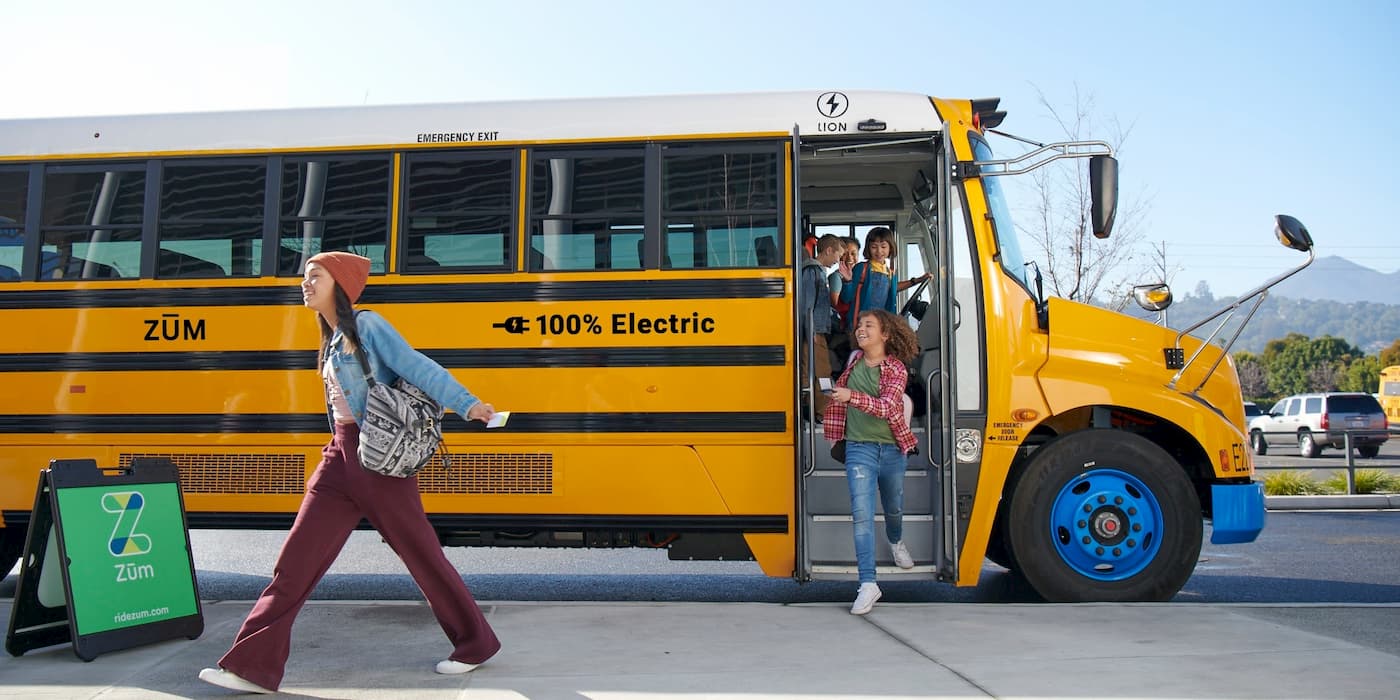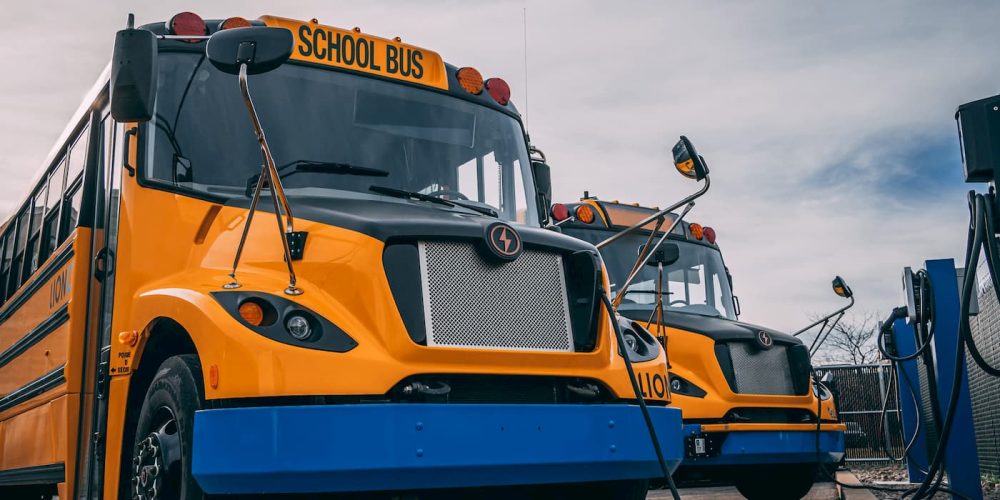
Sitting at the bus stop, breathing toxic exhaust fumes may be a thing of the past as soon as electric school buses roll out in several districts around the US. But the pace is not moving as quickly as it should be as many decision-makers are failing to grasp the benefits for students, the school, and the environment.
Each year over 24 million kids hop on the big yellow bus to catch a ride to school in the US. Without even knowing it, they are breathing toxic carcinogens that are harmful to their health.
According to the Centers for Disease Control and Prevention (CDC), around 6 million US children have asthma. Furthermore, your lungs don’t fully develop until you are about 20 to 25 years old and out of school.
The exhaust from diesel school buses emits “40+ toxic air containments, carcinogens” along with other toxic compounds and fine particle matter.
To make matters worse, school buses constantly stop while the fumes travel into the vehicle. An older study from Yale found particle levels were 5 to 10 times higher inside the bus than out.
Although newer school buses are designed to meet updated EPA standards, they are still a few issues. For one thing, newer school buses are more likely to be found in higher-up school districts, leaving low-income communities disproportionality affected by the toxic emissions.
Electric School buses to the rescue
As of June 2022, school districts around the US committed to 12,275 EV school buses across 38 states.
Electric school buses have zero tailpipe emissions, are safer for kids, and offer benefits to schools that gas-powered buses could only dream of.

Why electric school buses are the future of the US
School districts implementing electric school buses are providing a cleaner, healthier environment for their students and community. But you may not know that EV buses can also save schools money and, as some are proving, enhance the energy grid.
Electric vehicles generally require less maintenance and don’t require diesel gas to run (which is already higher priced than regular gas).
The Modesto Unified School District in California ordered 30 Blue Bird electric school buses in March and expects to save over $250,000 a year on fuel alone.
But one of the most significant advantages is still being explored. Last week, Highland Electric Fleet announced its partnership utilizing vehicles-to-grid-technology (V2G) to send energy back to the grid.
Highland partnered with Thomas Built Buses, Proterra, and others to send a total of 10 MWh of energy back to the grid this summer. Though it may not seem like much, 10 MWh is enough to power around 600 homes.
The technology could be a significant advantage to school districts as a backup energy supply. Or, in some cases, they may be able to sell energy back to the grid during peaks or super-peaks.
Most importantly, there’s no reason for school districts not to switch with new incentives and rebates to buy electric school buses.
The American Rescue Plan Act of 2021 offers $7 million total for eligible US schools with a $300,000 rebate for each EV bus. And the new Clean School Bus Program (part of the 2021 Infrastructure bill) awards up to $500 million to replace diesel buses with zero emission alternatives or electric school buses.
Electrek’s Take
Switching to electric school buses seems like the only option at this point. With new incentives and rebates, why would you not make the transition as a school district?
EV buses are better for the students and community, and they can also save the district money in the long run. The majority of states are adopting electric school buses in some fashion, but the decision often comes down to school districts and state leaders.
For the transition to happen, state governments will also need to step up and support the movement. For example, California is providing $1.5 billion for electric school buses this year to boost adoption.
Electric school buses are the future, but everyone will need to be on board to get there.
FTC: We use income earning auto affiliate links. More.



Comments